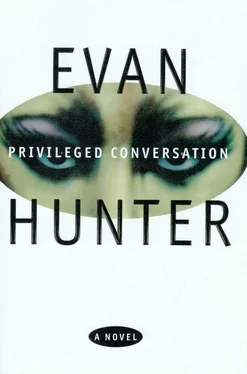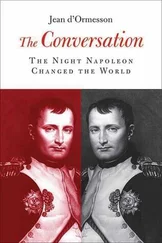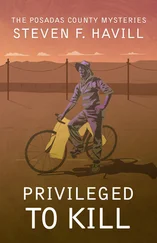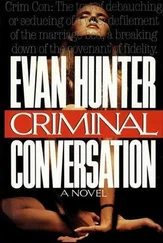She stands transfixed, a barrage of thoughts bombarding her mind. This number is unlisted, how did he get it? Does he know someone in the show? Is he an investor? Is he an actor who once worked the Winter Garden? Has he dated one of the...?
“How are you?” he asks pleasantly.
“I’m going to hang up.”
“No, I don’t think so.”
“What do you want from me?”
“Obedience,” he says.
“Leave me alone. I’ll go to the police again.”
“ What did you say?”
“Nothing.”
“Have you gone to the police?”
“No. But I will if you don’t...”
“ Have you?”
“I will go. I said I will ”
“No, you said again. ”
“No. But I will.”
“I wouldn’t.”
“I will.”
Her voice weakening.
“I’m watching you, Puss.”
“Please. You have to stop...”
“I’ll be there tonight.”
“No. Please.”
“Watching. Dance nice.”
“No. Don’t come. Please. I don’t want you to come.”
“You don’t want me to come , darling?” he says, and begins laughing.
She hangs up at once. She is shaking violently. She stands by the phone, her open hand pressed to her pounding heart.
“You okay?” someone asks.
She looks up.
Rum Turn Tugger.
“Yes, fine,” she says.
But immediately following the performance that afternoon, she limps over to the stage manager and tells him she thinks she sprained her ankle during the “Growltiger” number.
“I want to check with my doctor,” she lies. “But meanwhile I wouldn’t count on me for tonight.”
David has chosen a place he’s read about in New York , a dim, wood-paneled, clubby sort of dinner-dancing spot in the Village. “The steaks are terrific,” wrote the magazine’s restaurant critic, “and the eight-piece band plays much bigger -band music.” The tunes these musicians are playing now are hardly reminiscent of those David grew up with. Starting with when he was twelve or thirteen and first beginning to notice girls, the doowop songs he favored seemed to reflect his every adolescent mood and emotional shift, ranging from Brenda Lee’s “All Alone Am I” to “So Much in Love” by the Tymes, and all the other hanging-out, malt-shop, jukebox tunes that dominated the radio waves.
When he was fourteen or fifteen the charts exploded with “I Want to Hold Your Hand” and “Can’t Buy Me Love” and “I Feel Fine” and “She Loves You,” and more Beatles tunes than he could county, all of them an integral part of his tumultuous adolescence — when you were in love, the whole damn world was Paul, John, Ringo and George. And then when he was sixteen, the song that possibly best expressed his own inner turmoil, the song that seemed to speak directly to him, was the Rolling Stones’ “Satisfaction,” of which he, too, couldn’t seem to get none nohow. Oddly, when he was seventeen and his taste began to change somewhat, he played Frank Sinatra’s “Strangers in the Night” day and night, longing for that stranger in the night who would fill his arms one day. Or night. Or anytime, for that matter.
When he got out of high school and decided early on in college that he wanted to be a doctor, his musical taste took a more serious turn. “Ode to Billie Joe” was perhaps his favorite song that year, all haunting and solemn with ominous cello passages and dark hints of abortion or infanticide or both. When he turned nineteen, pop music seemed to go out of his life completely. The future was looming. “Mrs. Robinson” perhaps best exemplified for him the turn from a silly childish past to a mature responsible future. He was, after all, twenty-six and already a doctor when he first met young Helen Barrister on the bank of the Charles.
Tonight, much older but perhaps no wiser, he holds in his arms a radiant twenty-seven-year-old who floats with him to the strains of “Moonlight Serenade” and “You Made Me Love You,” rendered as Glenn Miller and Harry James must have done them back in the dim, dark forties before either he or Kate was born. He knows how foolhardy it was for a clumsy oaf like himself to have asked a dancer, a professional dancer , to go dancing with him, but here they are and she makes him feel like Fred Astaire in Top Hat , makes him feel like Gene Kelly in Singin’ in the Rain , makes him feel light-footed and light-hearted and light-headed as he glides her airily about the floor to these Golden Oldies neither he nor she recalls. To David, a Golden Oldie is Elvis Presley’s “Surrender.” To Kate, a Golden Oldie is Styx’s “Too Much Time on My Hands.”
Most of the patrons here have come to dance. Many of the women are wearing ballroom gowns, although this is a mere Wednesday night. One dark-haired woman in a long red gown is even wearing a tiara. The couples drift about the floor like so many versions of Velez and Yolanda, showing off their ballroom training in whirls and dips and fancy turns — but their brilliance kneels to Kate’s luster. You have witchcraft in your lips, Kate , he thinks out of nowhere, and wonders again about the wisdom of bringing her here to a place where he can be seen dancing with her in public.
She is wearing black tonight.
He is beginning to think that any color is her color, but she wears black superbly, her fingernails painted not to match the sleeveless, V-necked mini she is wearing, thank God, but echoing instead the carnivorous red lipstick on her mouth and the dangling red earrings on her ears. She has left a sheer, black, long-sleeved jacket over the back of her chair, and she steps out now in just the short flirty dress, piped in white at the hem and neck, flaring out dramatically over long legs sheathed in black. Her hair is swept up and away from her face, ribboned with the same piped fabric entwined around a fake white carnation tilted recklessly onto her elegant brow. Black high-heeled strapped sandals designed for a runway rather than a dance floor add several inches to her already spectacular height.
She is leading him, he realizes.
But perhaps she’s been leading him from the start.
He suddenly remembers her seduction of poor hapless Charlie. And wonders why she did that. And wonders again why she soul-kissed that kid from the bicycle shop. But the frown that creases his forehead is only momentary. He is lost in the scent of her perfume, lost in the dazzle of her flying feet, lost in the silken feel of her in the gossamer gown.
But perhaps, too, he was lost from the very start.
He has developed the philanderer’s habit of checking out a room the moment he enters it, reconnoitering it further as the evening progresses, wanting to be prepared for any unexpected contingency that will force him to explain, plausibly he hopes, what he is doing here with this young and beautiful dancer. As they come off the floor now...
The bandleader has announced something called “Elk’s Parade” which turns out to be a jumpy tune David has never heard in his life, and something neither he nor Kate would care to dance to, though he’s sure she can dance to anything and make it look spectacular...
...as they come off the floor, he scans the room again, checking out the diners, checking out the men and women moving off the floor or onto it, even searching the faces of the waiters and busboys to make sure there are no surprises lurking in the shadows here. He has thought of how he might introduce Kate if he ran into anyone he knows, but he has not come up with anything that would sound even remotely plausible. This is a psychiatrist from Seattle, we’re attending the same seminar. Nice try, David. This is a student of mine at Mount Sinai, I’m instructing her in Dance Therapy as a course of treatment for premenstrual dysphoric disorder. Oh yes, completely believable, David. Hi, this is my daughter’s first-grade teacher, I’m filling her in on Annie’s feats and foibles. Sure, David. Nudge in the ribs, accompanied by sly conspiratorial wink. The vast Brotherhood of Philanderers. Or, as it is known in the profession, the Order of Priapic Disorder Victims. Just kidding, folks. But he finds none of this funny.
Читать дальше











